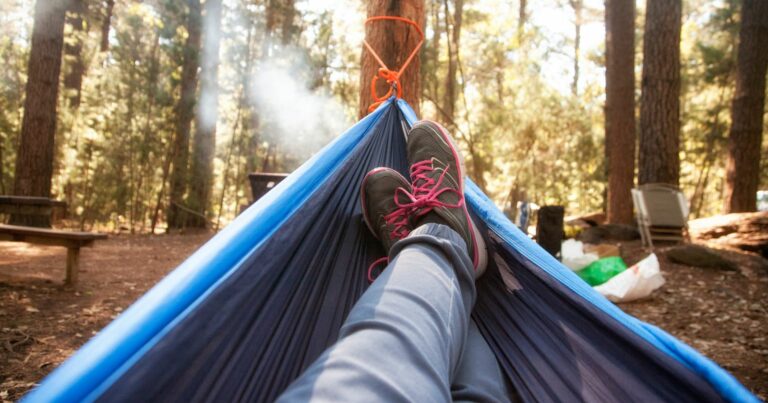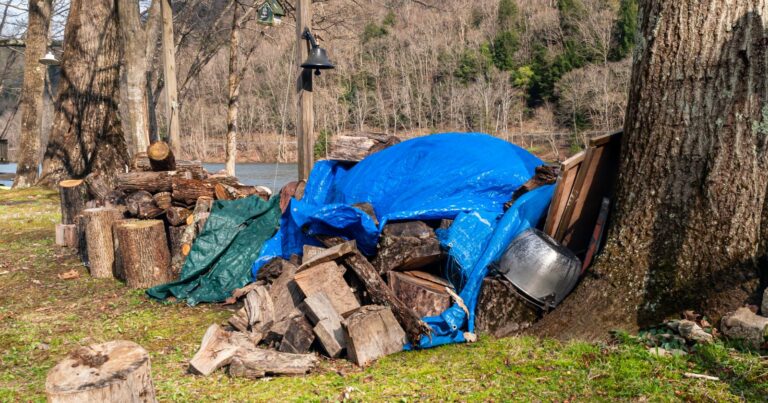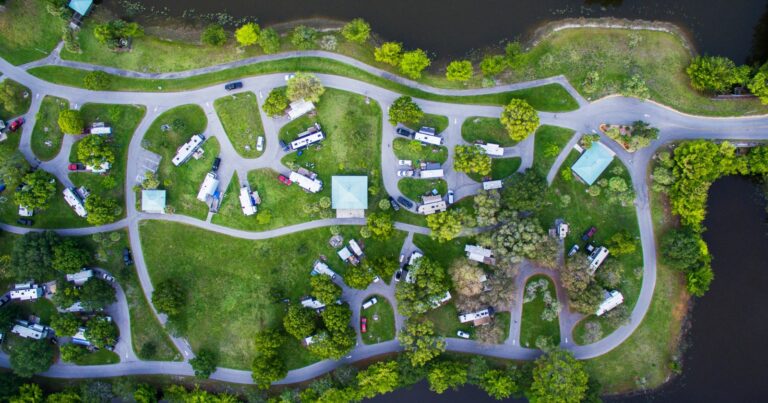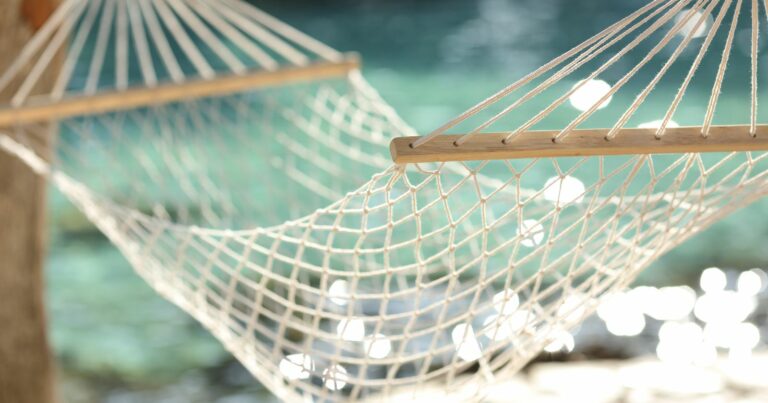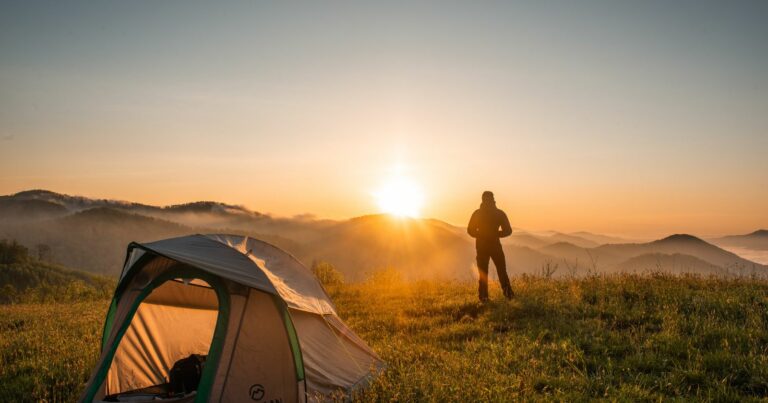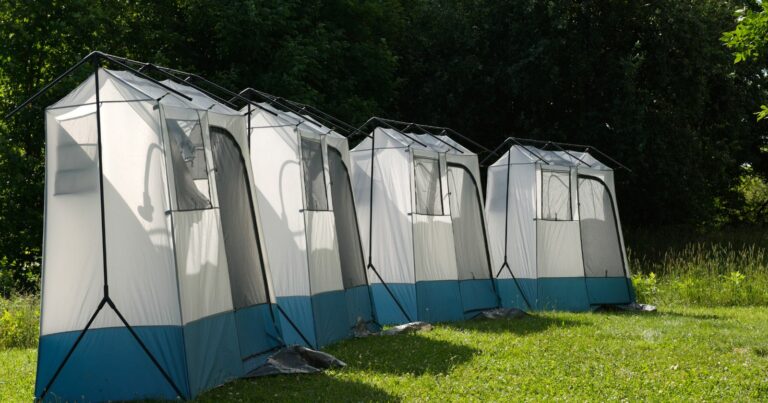How to Legally Use Public Grills for Camp Cooking in Colorado
Heading out for a weekend of camping and cooking out in Colorado’s beautiful outdoors? Make sure you know the rules before firing up that public grill! Nothing ruins a camping trip faster than getting slapped with a fine for improper grill use.
As an avid camper and outdoor enthusiast in Colorado, I’ve learned the hard way that you can’t just set up camp and start grilling wherever you want. Though parts of Colorado offer bountiful public lands, over half of the state is private property. Pitching a tent or parking your RV and breaking out the Coleman on private land without permission can land you in hot water.
Even in national forests and on Bureau of Land Management territory, there are strict dispersal camping rules. You’ll need to move your mobile grill operation at least three miles every 14 days. And in some areas grills and open fires are restricted completely during dry seasons. Failure to follow fire restrictions could cost you big time.
The key is doing your homework before the journey. Check with parks and recreation authorities to identify approved campsites and grill stations. Look up seasonal fire bans. And above all, tread lightly on our shared public spaces so everyone can enjoy Colorado’s natural gifts. Follow these tips and your camp cooking endeavors will go smoothly. Then point that grill toward the open sky, soak in that mountain air, and get ready for the outdoor feast of a lifetime!
Not All Public Land Allows Free Camping and Grilling
A common mistake many make when planning Colorado campouts is assuming you can camp and grill wherever you’d like on public lands. However, the reality is that over half of Colorado’s 70 million acres of land is private property. Setting up your tent or parking your RV and grilling on private property without the owner’s permission is considered trespassing. Make sure to only camp and cook on designated public lands.
Even on public lands, rules vary greatly depending on the agency that manages the area. For instance, certain national forests may allow dispersed backcountry camping with portable grills, while a state park along the Front Range likely has designated grill stations and campsites. Always research the specific public land location beforehand to understand permit requirements, fire restrictions, and where grilling is allowed.
Grilling Regulations on National Forest Land
Many of Colorado’s most popular camping destinations are located on U.S. National Forest land overseen by the U.S. Forest Service. The good news is that dispersed camping and grilling is generally allowed on National Forest land. However, be sure to follow these rules and best practices:
Dispersed Camping Limits
For dispersed camping (camping outside of designated campgrounds), you are typically permitted to stay in one location on National Forest land for up to 14 days within a 30-day period. After the 14-day limit, you must move your campsite and grill setup at least 3 miles away.
Be sure to check in with the local ranger district for specific time limits, as these can vary by forest. Overstaying your welcome on a dispersed camping spot could lead to citations.
Seasonal Fire Bans
Many National Forests impose campfire and grilling bans during the hot, dry summer months when the fire danger is elevated. Make sure to always check for fire restrictions before planning your campout. If a ban is in place, switch to using camp stoves and avoid any open flames.
Use Established Fire Rings & Grills
When allowed, build campfires and use grills only in designated established fire rings and grilling stations. Never construct new fire pits or drop grills onto vegetation as this risks starting a wildfire. Make sure all fires and coals are fully extinguished before leaving your site.
Pack Out All Trash
It’s essential to practice Leave No Trace principles when camping on public lands. Allowing food scraps or charcoal to remain at a dispersed site can negatively impact wildlife and soil. Remove all garbage including grilling coals and leftovers.
Grilling in Colorado State Parks
With 41 state parks offering camping, Colorado’s State Park system is another excellent public land grilling and cooking option. However, to protect park environments, grilling policies are much more restrictive than on National Forest land. It’s critical to know and follow state park grilling and cooking rules, which include:
- Grilling is only permitted within designated grill stations at campsites. Guests cannot bring their own free-standing grills.
- Fires and grilling are prohibited outside of established grills.
- No campfires are allowed directly on the ground. You must use provided fire rings.
- Fire bans are often implemented at State Parks, even when not in place on National Forest land. Always check for current restrictions.
Violating any state park grilling rules can get you evicted from your campsite for the duration of your visit. Don’t take chances with grilling—stick to park-provided stations.
Grilling on Bureau of Land Management Land
In addition to National Forest and State Park land, The Bureau of Land Management (BLM) oversees 8.3 million acres of public land primarily on Colorado’s western slope. Here are the key rules to know about grilling on BLM land:
- As with National Forests, dispersed camping is permitted for 14-days at a time.
- BLM also often enacts seasonal fire bans. Many BLM regions prohibit campfires and grilling year-round. Be sure to verify if grilling is allowed during your planned trip.
- Only use established fire rings or grills. Creating new pits can lead to scarring of the landscape.
- Pack out all trash and make sure coals are extinguished after grilling.
As you can see, regulations vary significantly depending on the agency managing the public lands. When planning your Colorado camping cookouts, make it a priority to research the area’s rules, fire season restrictions, and grilling do’s and don’ts. Taking the time to grill and camp legally and responsibly will help ensure our public lands remain protected for future generations.
And of course, observe general grilling best practices like monitoring the grill at all times, keeping water on hand, wearing flame-retardant gloves when handling coals, and being aware of dry brush that could ignite. Enjoy those perfectly seared steaks and veggies under the Colorado night sky! With a little preparation, your public land grilling experience can be safe, legal, and memories in the making.
Grilling Safety Tips to Follow on Public Lands
Now that you know the rules around legally using public grills and campfires in Colorado, keep these safety guidelines in mind to prevent accidents and injuries during your outdoor cooking.
Keep Grills Attended
Do not leave grills unattended while cooking. Embers may blow out of the grill and start a fire, or unattended food could burn. Stay by the grill and keep children and pets away.
Have Water On Hand
Always keep a jug of water or fire extinguisher within reach of the grill in case of emergencies. Douse escaped embers immediately.
Wear Grilling Gloves
Use flame-retardant gloves when stoking coals or moving anything on a hot grill. This prevents painful burns. Also wear closed toe shoes in the grill area.
Grill On A Stable Surface
Only place grills on solid, paved surfaces or dirt/sand—never directly on vegetation. Embers could drop into dry brush and ignite.
Dispose Of Coals Safely
After cooking is done, make sure coals are completely extinguished with water before disposing in designated coal disposal bins. Never dump hot coals on the ground.
Check Local Fire Danger
Know before you go! Check with land agencies for current fire restrictions before planning a cookout. Adhere to all bans.
Avoid Loose Clothing
Wear tight fitting clothing without dangling fabrics that could catch fire when grilling. Tie back long hair.
Grill Sober
Alcohol and grilling don’t mix! Impaired judgment around hot grills can lead to injuries and accidents. Keep the adult beverages away from the cooking area.
Following basic safety protocol around public grills will ensure your outdoor feasts are disaster free. You’ll protect the beautiful public lands you’re exploring and have peace of mind knowing your grill time is accident-free.
Packing a Portable Grilling Station
One of the best parts about camping on public lands in Colorado is that you often have the flexibility to grill in a scenic spot of your choosing rather than being confined to a designated site. With a portable grill setup, you can enjoy delicious campfire cooking with views of mountain vistas, lakes, or forests.
When packing a mobile grilling station for car camping or backpacking, here are some useful items to include:
Portable Propane or Charcoal Grill – Numerous compact and lightweight options are perfect for packing in a car or backpack. Go for a small kettle grill or single-burner propane grill.
Water Jug – Always bring ample water, not only for drinking, but to douse embers and coals after cooking.
Fire Extinguisher – A small canister extinguisher can put out escaped embers or flare ups.
Cooking Tools – Pack grilling essentials like tongs, spatulas, roasting forks, oven mitts, foil, paper plates, etc.
Firewood or Charcoal – Bring enough for several meals. Charcoal is lighter to carry.
Lighter Fluid/Fire Starters – These help ignite charcoal briquettes efficiently. Avoid lighter fluid with propane grills.
Trash Bags – Prepare to pack out all garbage and leftover food. Leave no trace.
With the proper portable grilling gear, you’ll be ready to legally and safely grill up campfire feasts from the comfort of your tent or picnic spot in the woods. Just be sure to only grill in areas that allow dispersed camping with portable fire containment units. Never grill directly on vegetation. Enjoy those s’mores in the backcountry!
Campground Etiquette When Using Public Grills
Part of ensuring your camp cooking goes smoothly is being mindful that public grills and fire rings are shared resources. Practice campground etiquette so everyone can enjoy the communal spaces.
Here are some public grilling tips when camping near others:
- Don’t hog the grill – If others are waiting to use the grill, set a time limit for your group and allow others to take a turn.
- Clean up properly – Remove all your leftover food and trash after cooking. Also brush the grill grates clean for the next campers.
- Keep it quiet – Avoid rowdy behavior around shared grilling stations. Keep voices and music at reasonable levels, especially at night.
- Make room – Don’t overcrowd the grill area. Allow plenty of space for other groups to cook simultaneously.
- Manage smoke – Be aware of wind direction so smoke doesn’t blow into neighboring campsites.
- Mind the kiddos – Watch children around hot grills and teach them not to disturb or disrupt others’ cooking activities.
- Follow all rules – If there are posted grill usage guidelines, read and adhere to them. Use only the number of grills you’ve paid for at your campsite.
Respecting other campers makes public grilling more pleasant for everyone. You’re all there to enjoy nature and a good meal! Following etiquette allows communal camp cooking to remain a perk for all.
Enjoying a Safe & Successful Grilling Season
As you gear up for a summer of camping and grilling in Colorado’s beautiful surroundings, keep these final tips in mind for a fun and safe grilling season:
- Prepare for changing conditions – Fire restrictions and seasonal grill closures are common. Have backup menu plans that don’t require grilling.
- Do your research – Don’t just show up and assume you can grill. Make sure campfires and grilling are allowed in the specific area you’ll be visiting.
- Stay flexible – Be ready to adapt your plans if new fire bans are enacted during your trip. Shift to using camp stoves if needed.
- Respect all closures – If an area is closed due to high fire danger, honor that closure and avoid grilling there. Preventing wildfires protects the forests.
- Practice fire safety – Follow all the grill safety tips outlined earlier, including fully extinguishing coals and embers before leaving a site.
- Role model good behavior – When camping or grilling with children and teens, lead by example by adhering to all regulations.
- Thank the rangers! – Express your appreciation to land management personnel for their efforts to maintain beautiful and protected public spaces.
Frequently Asked Questions
Q: Do I need a permit to use public grills in Colorado?
A: No permit is required to use public grills in national forests or on BLM land. However, you must have a valid camping permit to use grills in designated campgrounds at Colorado state parks.
Q: Can I bring my own freestanding grill to use in campgrounds?
A: No, most Colorado campgrounds prohibit outside grills and require using the provided grilling stations at your campsite. Read the regulations for the specific area.
Q: What should I do if a fire ban is put in place during my camping trip?
A: If a fire restriction is enacted mid-trip, you must fully comply by ceasing any campfires or grilling activities. Switch to using gas camp stoves that do not produce sparks or flame.
Q: Is it okay to grill on the beach at Colorado reservoirs and lakes?
A: Generally no, grilling is not allowed directly on beaches. Containers of hot coals can burn feet and embers may ignite grasses. Move grills to designated areas.
Q: Can I gather wood from the surrounding forest to fuel campfires?
A: No, you cannot gather wood, twigs, etc from public lands. Bring your own firewood or purchase from local approved vendors to avoid spreading forest pests.
Abiding by rules and being prepared will ensure your camp cooking is legal, safe, and considerate of Colorado’s vulnerable natural areas. Here’s to spectacular summer grilling and making mouthwatering campfire memories!


